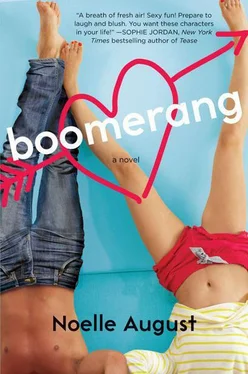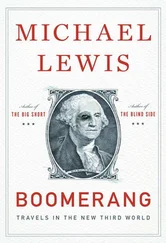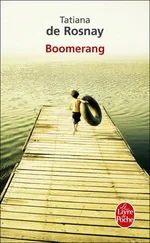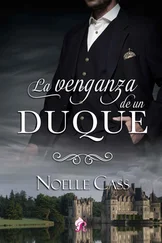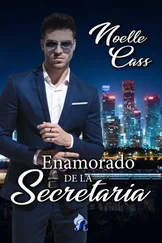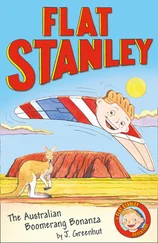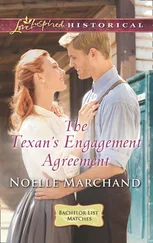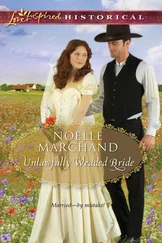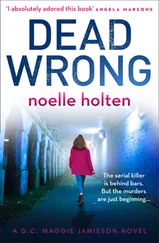I’m not sure what I want to ask, exactly, and it always feels like cheating, somehow, to go to my mother for advice. Like taking a shortcut through private property. “How did you decide, umm—like what your artistic perspective would be? Like how to, I guess, see things the way you see them?”
“I just let myself play,” she mutters. “I didn’t hold on as tight as you.”
I swallow, disappointed, and stare past her out to the sage scrub dotting the walls of the canyon beyond our backyard.
“Where’s Nana?” I ask, changing the subject. “How’s she doing today?”
“Good day,” my mother says, but my father scratches the gray stubble under his chin and shakes his head. My mom’s special gift—and curse—is seeing what she wants to see. It’s great for art. Not so much for life.
I sigh, staring past my mother as she snaps a few more pictures.
Dad drops onto an original Eames that they treat like a yard sale find, completely heedless of the pesto that drips from his spoon onto the spongy yellow linoleum floor of my mom’s studio. Luckily, my mom has the equivalent of Ethan’s color-blindness when it comes to stains.
Which, of course, makes me think of him, of the things I’d learned during our mutual interview. I learned that he practically grew up in his folks’ bowling alley and once missed a perfect score by one spare. I learned that his eyebrows swoop upward over his nose when he’s deep in thought. And I learned—without him telling me—that he loves kids. His face shined brighter than my mom’s studio lights when he talked about coaching youth soccer.
It doesn’t matter. I know that. Though I suppose if you have to wake up next to someone after a night you can’t remember and work with that person in your face every single day, it’s better if that person is decent, smart, and sexy.
“How was your first day, kiddo?” asks my dad in that creepy way both my parents have of reading my mind. “Make any friends?”
“Great,” I say. “Though it turns out I’m competing with another intern for a job there. And we’re in marketing, which isn’t my thing.”
My mom clucks her disapproval, but my dad brightens.
“That’s great,” he says. “Best thing in the world is winning something you really fought for. And it doesn’t matter if it’s your thing. Make it your thing.”
“I guess.”
“Trust your old man on this one.” He stands again. Since his accident—when an apprentice electrician turned off the wrong breaker, putting my dad in contact with a live wire, he’s physically incapable of sitting for more than two minutes. He hands me the spoon and threads a precarious maze of light umbrellas, coiled electrical cords, and boxes of props that look like they come from a production of Lysistrata set on the moon.
Ducking behind my mother, he wraps his arms around her and nuzzles her neck. “This one said no to me about a hundred times before she gave me a yes.”
“What are you talking about?” I say. “You got pregnant with me on your first date!”
“Yeah, but it took me a hundred tries to get to that date. No wonder we were so goddamn randy by then.”
Laughing, my mom tilts her head up and draws him in for a kiss—my cue to gather up the shreds of my psyche and flee.
I grab my camera from the hall closet, where I’ve stashed it since some party guest of Sky’s used it to shoot a highly meaningful vignette about his balls.
Heading through the sunny Tuscan kitchen to Nana’s suite, I snag an apple from the basket, peek through the stacks of mail to see if anything’s for me, and put aside my mom’s copy of Aperture to steal later.
Nana’s TV is set a notch past ear-splitting, so I knock vigorously and then open the door.
I find my grandmother in underwear and sneakers, trying to wrestle into silk pajama pants, the only thing she’ll wear these days because, she says, everything else makes her legs itch. About a hundred bobby pins stud her wavy hair—also auburn out of a box—which means she’s just had it washed and set.
“Oh, good, you’re here!” she exclaims. Behind the thick lenses of her eyeglasses, her lively hazel eyes look clear, focused, and I’m thankful for that.
Sometimes, it feels like Nana’s on a boat, and I’m on the shore, waving goodbye and watching her grow smaller and smaller in the distance. I can’t swim out after her, and I can’t bring her back. I can only capture the parts of her that remain in sight.
I shake off my gloom.
“Hey, Nana!” I give her a kiss on her cool papery cheek and then coax her back into a chair. “Let me help.”
She lets me take off her shoes and then steps into the pajama pants, which I draw up her legs and then, lifting her from her chair, secure around her waist. I tug the drawstring tight, like she likes it, aware of how hollow-boned and small she feels to me these days.
“Is the top in here?” I ask, going to her closet.
But she just shrugs and gives me a look that tells me she’s lost the thread. I find a soft cotton top in midnight blue with tiny white hibiscus spilling down the sleeve and help her into it, buttoning the buttons for her.
“I’m glad you brought that,” she says, gesturing at the video camera I set down on her bureau. “They told me to film my things in case the girl comes back and takes them.”
“What girl? Who told you?”
“The girl they have come help me.”
She must mean one of her aides, though I can’t imagine any of them stealing from her.
“Can we start?” she asks. “Bring me my purse.”
I do and turn on my camera, focusing on her crisp bed linens to help me adjust the white balance and then opening the iris to let in a little more light.
She fishes around and pulls out a long strand of pearls with a diamond pendant in the symbol of a chai —the Hebrew symbol for life.
“Stan brought this back from Israel,” she says, and I film her as she worries the beads, drawing them over and over again through her fingers. “He spent three hundred dollars on them, a fortune in those days.”
“I guess he thought you were worth it, Nana.”
She lets herself smile, though it collapses into a frown, and she shoves the beads at me. “Take them.”
“Oh, no.” I lay them in her lap, placing her hands back on top of them. “They’re yours. You keep them.”
She rolls them up and drops them back into her purse, which she snaps shut and hugs against her chest. “I just don’t want that girl to get them,” she says. “She comes in here and touches everything.”
“She’s probably just trying to clean or help you put things away.” I make a mental note to ask my mom about this new person.
For now, though, I turn the camera back to my grandmother, try—but fail—to see her through the lens’s more objective eye. I watch her, the wry half-smile on her lips telling me she’s dreaming some secret dream—maybe about my grandfather or about being a young girl whose ambition brought her to the law and to fight for civil rights in the South.
I look around at her jewelry, at her books and dresses and mementos. Next to the photo of her standing shoulder-to-shoulder with Martin Luther King is one I love even more. She sits behind the wheel of an old car—a Studebaker, she told me—with one of my grandpa’s cigars clamped, unlit, between her teeth. Her smile is absolutely dazzling, and she gives the camera a wink like the moment will last forever.
Something snaps to life inside me, and I realize I’ve found my way into my film. These objects—the photographs, the jewelry, the antique perfume bottles lining her ivory-inlaid dresser, all of these things she’s kept through her adulthood, through the loss of my grandfather and her two older sisters, through her journey from an extravagant apartment in Forest Hills to this modest room clear across the country, they can tell her story for her. They can help me tell the world who she is.
Читать дальше
